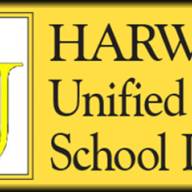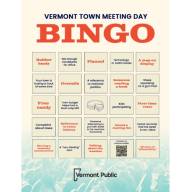Photo: Jeff Dooley, Vermont’s taxpayer advocate, works at his office in Montpelier. Photo by Sophie Acker
Tax troubles? Vermont’s taxpayer advocate wants to help
He can’t fly or shoot lasers out his eyes, but he can do what many dread and few understand: taxes.
By Will Thorn, Community News Service
Jeff Dooley, Waitsfield, is an avid Buffalo Bills fan, enjoys video games and goes out with friends for pub trivia as often as he can — something he says he’s pretty good at. But beneath the guise of normalcy, Jeff is a Clark Kent–like figure. He can’t fly or shoot lasers out his eyes, but he can do what many dread and few understand: taxes.
Dooley, raised around Rochester, New York, is Vermont’s state taxpayer advocate, a relatively obscure gig within the state Department of Taxes but one with an outsize impact. Dooley’s role is “to be the voice of the taxpayer within the Department of Taxes,” fielding their calls for help, posing questions to lawmakers on their behalf and, he hopes, easing the headache of an often-arcane process.
“We’re not there to browbeat people or scold people,” he said. “We’re really there to get people back on the right track.”
He arrived in Vermont around 2010 after a few years with corporate law practices in western New York. He started off as an auditor with the Department of Taxes, moved to a policy analyst and in 2016 came to his current post helping Vermonters with their taxes.
He sits through director and leadership meetings and eyes proposals from the perspective of the taxpayer. He asks questions like, “Is this going to create problems for taxpayers interacting with us?” and “Is there a way that we can do things in the department that makes it easier for taxpayers to meet their requirements and applications?”
Dooley presents a report to legislators every January in which he proposes statutory changes he thinks would help taxpayers based on common problems he observed throughout the year.
On a smaller scale, if an interaction between the department and a taxpayer gets out of hand, Dooley is called upon to step in and help right the ship. He also reviews extraordinary relief claims — when taxpayers believe a rule applies unfairly to them and file an appeal. He then summarizes their situations in a report that goes to the department commissioner for a final decision. Dooley handled 50 claims last year — a typical number, he said.
Dooley and two others in the department work on the Offer-in-Compromise Program, which gives people who are behind on payments an opportunity to pay the department what they can based on a detailed form. The form asks for monthly expenses, income, assets, and bank accounts to back up claims, although Dooley said other circumstances can be taken into account. If the offer is found reasonable, it gets approved in a scenario Dooley described as a “win-win.”
Running the program, along with handling extraordinary relief claims and day-to-day taxpayer questions, means Dooley assists between 100 and 120 taxpayers per year, he wrote in an email.
“The Tax Department’s Taxpayer Advocate office ensures taxpayer voices and perspectives about tax processes or laws are at the front of mind for the Tax Department and Legislature,” Craig Bolio, commissioner of the Department of Taxes, wrote via email.
Matt Harris, a program manager of the Champlain Valley Office of Economic Opportunity, agreed. The office runs sites for a national tax program known as Volunteer Income Tax Assistance.
The free, nationwide program is designed to aid low- to moderate-income taxpayers in filing their state and federal income tax returns and handling other financial matters. It is used by more than 4,000 Vermonters a year across 17 statewide locations, Harris said. The program typically helps people earning less than $64,000 a year, people with disabilities, older folks and taxpayers who have limited English skills, the state says, with a priority on people 60 years and older.
The Champlain Valley Office of Economic Opportunity operates three of the state’s 17 sites: one in Chittenden County (where about a quarter of tax returns filed via the program come from), another in Addison and one covering both Franklin and Grand Isle counties.
In Vermont, if income is below a certain threshold, people aren’t required to file taxes. But people who opt against filing could be missing out on thousands of dollars in state or federal refunds and credits — money Harris and his team want to help get back to taxpayers who may need it most.
“That’s money going back into the community — especially in the low-income or housing-insecure communities — that can be used to not only advance that single taxpayer but advance the community as a whole and the state of Vermont, so that there are less people struggling with poverty,” he said.
Dooley said that, because of his title, people think of him as the “nice guy in the Department of Taxes.” He recalled a phone call a few months ago:
“Oh, my God, you’re being so kind,” the woman on the other end of the line told him. “I expected you to yell at me.”
Thinking back to the conversation he laughed. “No, I don’t yell at people,” he said before outlining: “You filed the wrong form or you missed the deadline. It happens. Let’s work on moving forward and getting you back to where you’re supposed to be.”
Still, he thinks many people are wary of calling the department. He mentioned undocumented workers and those who think that if they call they’re going to get flagged and put on a “list” as two groups the department is missing most often. (Dooley denied the existence of such a list.)
Dooley wishes that more people knew his position existed at all. Last year, he successfully lobbied for giving a taxpayer flexibility if they mistakenly filed a homestead declaration but not a property tax credit form — both of which are needed for property tax credit claims. They now have until March 15 to amend their form (with a $150 penalty, though).
Dooley said he works with 10 to 15 people per year who fall into that predicament. Over 100 people have benefited this year from the new flexibility so far this year, he estimates.
That’s a bittersweet victory because, he said, it means he could’ve helped a lot more taxpayers than he had been — if they had known about his office. He called it “frustrating.”
Some go unhelped because of high call volumes. While the federal taxpayer advocate office in Burlington has five to six employees, Dooley is the only full-time advocate for state taxes. The tax commissioner’s assistant helps Dooley by screening emails and voicemails for the most relevant issues, but even still it can be overwhelming to handle calls and other responsibilities during the busy season, he said. That season runs from early February to April 15.
During those more strained times, the department hires temps to take some of the pressure off Dooley by fielding messages. While they do a good job, he said, temps sometimes don’t send a taxpayer his way because they don’t realize they should or can.
Turns out navigating taxes is tough for helpers too. Dooley says he gets taxpayers’ gripes.
“I just try to listen,” he said. “I try to reassure them that this is not specific to them — that a lot of people get tripped up. Taxes are complicated.”
The Community News Service is a program in which University of Vermont students work with professional editors to provide content for local news outlets at no cost.
You might also like














